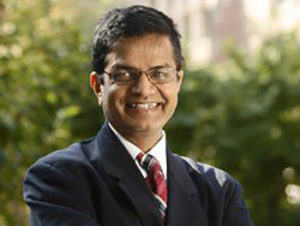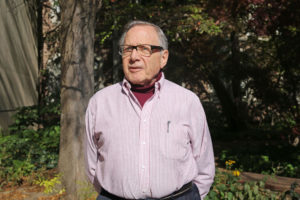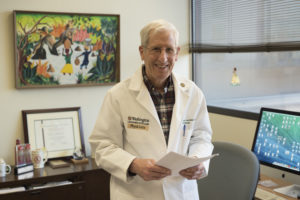Three researchers at Washington University in St. Louis are being honored for their outstanding contributions to science by the Academy of Science-St. Louis. Raj Jain, David Kirk and Stuart Kornfeld will be honored April 5 at a dinner at the Missouri Botanical Garden.
Award recipients were nominated by their peers in the scientific community in recognition of outstanding contributions to science, engineering and technology.
The St. Louis scientific community, the academy’s board of trustees and members of the Academy of Science-St. Louis give these awards in recognition of major contributions to research, industry and quality of life alongside excellence in mentorship and communicating with the general public.
Raj Jain

Jain, the Barbara J. & Jerome R. Cox, Jr. Professor of Computer Science in the School of Engineering & Applied Science, is being honored with the James B. Eads Award, which recognizes a distinguished individual for outstanding achievement in engineering or technology.
On the faculty since 2005, Jain has made numerous contributions to computer networking including traffic management, congestion control and performance analysis.
Jain’s research interests include inter-cloud and multi-cloud computing, architecture for the next-generation internet, wireless for unmanned aircraft systems, wireless emergency communications, aeronautical wireless datalink, energy and sustainability, resource management in wireless networks, mobile video modeling, network security, congestion control and traffic management, energy-efficient protocols, performance analysis, and modeling and simulation.
Jain has been recognized for these scientific achievements with numerous awards and honors, and is a fellow of the Institute of Electrical and Electronics Engineers (IEEE); the Association for Computer Machinery (ACM); and the American Association for the Advancement of Science (AAAS). He has 14 patents and has written 16 book chapters, 65 journal and magazine papers, and more than 110 conference papers. Google Scholar lists more 21,000 citations to his publications. He is a co-inventor of the DECbit scheme, which has been implemented in various forms in DECnet, OSI, Frame Relay and ATM Networks.
David Kirk

Kirk, professor emeritus of biology in Arts & Sciences, will receive the 2018 Science Educator Award, which recognizes outstanding contributions to science education, or to the public understanding of science, engineering or technology.
He has spent a lifetime teaching developmental biology and researching the evolutionary origins of multicellular organisms. He is internationally known for his work with the spherical green alga known as Volvox carteri, which his group used as a model system to analyze how a program for cellular differentiation may be encoded in a genome, and how such a program may evolve.
Kirk has a great passion for educating and supporting teachers. Now in retirement, he works to advance K-12 science education by improving the way evolution is taught in schools. For many years now, Kirk has been involved with the university’s Institute for School Partnership, and its precursor, Science Outreach.
He is a mentor and a resource to a large number of St. Louis area educators. He helps by supplying books for an evolution education book club for area science teachers, then facilitates discussion groups. He also helps lead the daylong Darwin Day celebration held annually on the Danforth Campus, and he funds the David and Marilyn Kirk Teacher Fellowship, which supports a local leader in evolution education.
Stuart Kornfeld

Kornfeld, MD, is the David C. and Betty Farrell Professor of Medicine at the School of Medicine. He is being honored with the Peter H. Raven Lifetime Achievement Award, which recognizes individuals with a distinguished career in science, engineering or technology.
Kornfeld, also a professor of biochemistry and molecular biophysics, is widely known for his work describing how proteins are transported through cells. His research has been instrumental in understanding the workings of lysosomal proteins, which must make their way to the cells’ lysosomes in order to digest cellular parts and molecules that are no longer needed and help cells dispose of viruses and bacteria. Misdirected or malformed lysosomal proteins can lead to disease.
Kornfeld’s research into understanding how these proteins are sorted, packaged and transported has shed light on lysosomal storage disorders, such as Tay-Sachs disease and Niemann-Pick disease.
Kornfeld has been honored for his contributions to science with numerous awards, including the E. Donnall Thomas Prize, the Karl Meyer Award from the Society of Glycobiology, the Kober Medal from the Association of American Physicians and the Passano Award. He has been elected to the National Academy of Sciences, the National Academy of Medicine, and the American Academy of Arts and Sciences, and he has served as president of the Association of American Physicians.